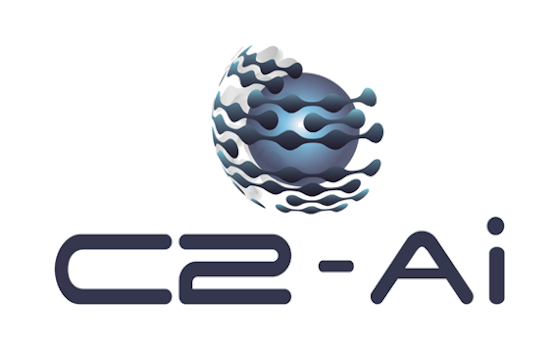 Health tech provider C2-Ai has formally launched a new 'observatory' system to help hospitals gain a better understanding of risks, outcomes and safety within maternity and neonatal services.
Health tech provider C2-Ai has formally launched a new 'observatory' system to help hospitals gain a better understanding of risks, outcomes and safety within maternity and neonatal services.
Announced at the annual NHS ConfedExpo, the new system will equip hospitals and frontline teams with a detailed picture of individual health trajectories for women, and the performance of maternity units.
Known as the 'Maternity & Neonatal Observatory', the system is based on a highly regarded AI-backed risk methodology already used in the NHS, and in top hospitals around the world, to measure safety and performance, highlight hidden risks in healthcare, and safely manage waiting lists.
By shining new light on outcomes for mothers and babies, it will help healthcare providers to proactively identify and address areas of concern early within maternity services, before they escalate or become systemic problems.
Frontline clinical teams will also be better informed about specific risks and care requirements for individual women, including any specialised support needed to ensure favourable outcomes.
Dr Mark Ratnarajah, a practising NHS paediatrician and UK managing director for C2-Ai, said: "Maternity services have come under close scrutiny in the public eye. By working closely with partners in the NHS, we will provide capabilities that can alert healthcare providers to challenges at the earliest of stages. And they will have new analysis to help them to demonstrate quality to regulators, maternity incentive schemes, and the outside world.
"Insights needed to achieve this can often be buried within data held in disparate places. We can now decode that complex clinical data, and unearth intelligence needed to support a learning environment. In addition to current evaluations of compliance with processes, services will have a new means to help them understand, interrogate, and enhance outcomes on an almost continuous basis."
Early adopters within the NHS are expected soon, with maternity teams in trusts across several regions having already provided positive feedback on the observatory's capabilities.
The system works by calculating and comparing in-detail observed outcomes for women and babies, in relation to expected outcomes for those individuals. Tailored for the acuity level of each maternity and neonatal service, the observatory uses AI and machine learning algorithms, widely proven in the NHS and internationally, to assess a total of 47 clinical factors. It takes into account case-mix adjusted maternal and neonatal clinical outcomes, impacts from social determinants of health such as ethnicity and deprivation, and comorbidities.
Maternity services are then able to visualise in granular detail where they may need to focus attention. The same system then allows providers to track if policy changes and quality improvement measures put in place have led to improvements.
Healthcare providers will be better equipped to identify patterns - for example the prevalence of sudden or unexpected increases in complications. They will be able to carry out deeper root cause investigations into adverse events. And they will be able to use insights to support accurate reporting on performance to regulators, and NHS Resolution’s Maternity Incentive Scheme.
Significant gains are also expected in tackling maternal healthcare inequalities. Research released in 2022 revealed maternal mortality rates to be four times higher for women from black ethnic backgrounds, compared to white women, and nearly twice as high for Asian women. Women residing in the most deprived areas also experienced higher maternal mortality rates. The findings were published in a report from Birthrights (1), which also examined inequalities in risks facing babies, including stillbirth, injuries, and brain damage.
Combined analysis of community care, and maternity and neonatal outcomes, made possible through the Maternity & Neonatal Observatory, is expected to support healthcare providers’ ability to measure progress in tackling such inequalities, including in NHS England’s Core20PLUS5 programme on narrowing healthcare inequalities.
Stephen Mackenney, CEO for C2-Ai, and a former head of quality, safety and clinical governance in the Department of Health, said: "New insights available through the Maternity & Neonatal Observatory, can help services to react to immediate challenges, and to proactively forward plan. This has the potential to support strategies at national, regional and local level, to help healthcare providers to focus training, to personalise care for individual women, to plan resources across healthcare systems, and to develop policy, based on evidence of what delivers the best outcomes for people receiving care.
"Healthcare providers are working tirelessly to improve quality and safety. I look forward to seeing our technology support them in their mission to enhance care in the maternal services so many people rely on."
About C2-Ai
C2-Ai is a trusted NHS digital partner. The company has provided national support and its technology is used in a wide number of NHS trusts and across 11 countries.C2-Ai provides an AI-backed suite of hospital care quality/efficiency improvement tools developed from more than 30 years of research, ten years of development and the world’s largest and geographically broadest patient data set (from 46 countries). In the UK these systems have a track record for delivering demonstrable improvements in care.
1. For further information on research into inequalities please see Systemic Racism, Not Broken Bodies, from Birthrights at https://birthrights.org.uk/campaigns-research/racial-injustice/